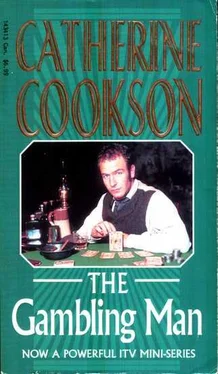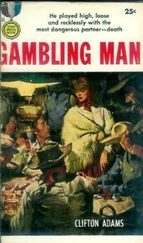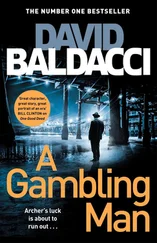If he were coming to work he would come here to see to the men. If he didn’t put in an appearance, well she must see to them, and once they were settled she would go on to Simonside and offer her condolences . . .
He came into the office at ten minutes to nine and she was shocked at the sight of him, and sad, truly sad; yet at the same time envious of a woman who, by her going, could pile the years almost overnight on a man.
She rose swiftly from the chair, then came round the desk and stood in front of him, saying, and with sincere feeling, ‘I’m so sorry. Now you shouldn’t have come, I didn’t expect you. You . . . you must go home and stay there as long as you feel it is necessary; there’s no hurry, I can see to things . . .’
She watched him wet his lips before saying in a voice so unlike his own in that it was quiet, like that of a sick man bereft of strength, ‘I’d . . . I’d much rather be at work, if you don’t mind.’
‘Well—’ she shook her head slowly—’it’s as you wish. But . . . but you don’t look well. And . . . and haven’t you got . . . ? Well, aren’t there things you must see to officially?’
‘No.’ He shook his head. ‘We . . . I went on Saturday. The police said they’d let me know if they heard anything further. Mr . . . Mr Buckham’s father has gone over, I’m to see him when he comes back.’
‘Oh.’ She stared into his face. It was grey, lifeless. She realized as she looked at him that his appeal did not come from his looks at all, as one might imagine, as she herself had imagined years ago, but from the vitality within, from the bumptiousness and the arrogance that was part of his nature. At the moment there was no life either in his face or in his body. But, of course, it was to be understood this was only temporary; he was under shock, he would revive . . . she would see that he revived. The decision he had taken to come straight to work was the best possible thing he could have done.
She said now, ‘Then I can leave you?’
‘Yes.’
She picked up her bag and gloves from the desk, and turning to him again, she said, ‘If you wish you may send Mr Taylor with the collection.’
‘Thanks.’ He inclined his head towards her.
‘Are you staying with your parents?’
‘No.’ He shook his head, ‘I’ve been with them over the weekend but I’m going back to the boatyard.’
She said with some concern now, ‘Do you think it wise for you to be alone at this time?’
‘My brother will be with me.’
‘Oh.’ She stared at him; then again she said, ‘I’m deeply sorry.’
He made no reply but turned from her and she had to stop herself from going to him for she imagined he was about to cry, and if she were to see him cry . . . She turned hastily and went out.
Alone now he stood staring down at the desk as if he had never seen it before, as if he were surprised to find it there; then going behind it, he sat down and, drawing a handkerchief from his pocket, wiped it quickly round his face before blowing his nose. He had said he’d be better at work. He’d never be better anywhere, anytime, but being here was better than remaining in the kitchen. He’d go mad if he had to listen to any more talk of Janie. Since Saturday night they had talked about her, wailed about her, cried about her, and he too had cried and wailed, but inside. To them it was as if she were lying in the coffin in the corner of the room. They had drunk their beer and had their tots of whisky as if they were holding a wake. They had sat up all night, the Learys and her da and grannie, and his own father and Ruth and Jimmy . . . and her. Nellie had come and her husband with her. And that had been another thing that had nearly driven him mad, when Nellie announced through her tears that she was pregnant at last, and her, his big slob of a slavering mother, had cried, ‘That’s God’s way. That’s God’s way, when He shuts one door He opens another.’ Another day among them and he would have gone out of his mind.
There was only one good thing that had come out of it, he and Jimmy were back where they were before. Nothing had been said but Jimmy hadn’t left his side since Saturday, not even during the night, the longest night of his life. All Saturday night he had sat by his side up in the loft, and last night too, and it was he who had said early this morning, ‘Let’s get back away home, eh?’ It was odd that Jimmy should think of the boatyard as home rather than the place in which he had been brought up. But Janie had made it home.
He thought with shame and guilt of how he had begun to compare it with Charlotte Kean’s place. God, he wouldn’t swop it for a palace decked with diamonds at this moment if Janie was in it.
Aw Janie. Janie. Oh! God, and they had parted like strangers. The last words he spoke to her were, ‘You are hard. I said it afore in this very house and I say it again, there’s a hard streak in you.’
She had gazed at him and replied, ‘Aye, perhaps you’re right.’
Then she was gone, and when the door closed on her he had beaten his fists against his head.
Why the hell was he standing there! Why didn’t he go after her and drag her back by the scruff of the neck? He was her husband, wasn’t he? He had his rights—was he a man? No other bloody man in the town would have put up with what he had these past two weeks, they would have knocked the daylights out of her. Why was he standing here?
Back in the cottages they referred to him, behind his back, as ‘the big fella,’ and he had come to think of himself, and not without pride as ‘a gambling man.’ But what in effect was he? He . . . he was nothing more than a nowt who couldn’t keep his wife, a nowt who had let a little chit of a lass best him. Had it happened to John George he would have said, ‘Well, what do you expect?’
. . . John George!
This morning he had taken up a jug and hurled it almost at the same place at which he had thrown the ship’s wheel. It was because of him he was in this pickle.
Janie! Janie! How am I to go on?
There was a knock on the door and Mr Taylor entered and provided him with the answer . . . work. It was either that or the river.
In 1877 those who were enlightened by reading newspapers discussed among other things such topics as Disraeli proclaiming Queen Victoria Empress of India and seeing to it that she had the adulation of Indian princes and African chiefs. But for the ordinary man and woman in towns such as South Shields, there were other happenings that struck nearer home, very much nearer home.
The sea which provided most of the inhabitants with a livelihood also created havoc and disaster. There was that awful night in December last year when three vessels were wrecked and the sea, still unsatisfied, had engulfed and destroyed another two later in the day, and all under the eyes of horrified townspeople who could only watch helplessly. Even though the Volunteer Life Brigade did heroic work, many lives were lost.
Such tragedies had the power to unite the townspeople, at least for a time. Rich and poor alike mingled in their sorrow until the poor, once again forgetting their place in God’s scheme of things, protested against their lot. And how did they protest? They protested through societies called trade unions.
Since the first national union of the Amalgamated Society of Engineers had been founded in 1851, in every town in the country where skilled workers were employed trade unions had sprung up, to the fear and consternation of the middle classes who looked upon them as a network of secret societies, whose sole purpose was to intimidate honest citizens, plot to confiscate their property, cause explosions and mob violence and bring the country to total revolution if they were allowed to get the upper hand.
Читать дальше


![Дэвид Балдаччи - A Gambling Man [calibre]](/books/384314/devid-baldachchi-a-gambling-man-calibre-thumb.webp)









